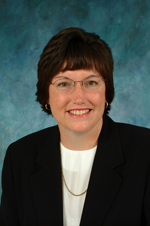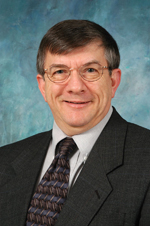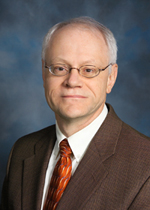 |
Sheila Wrobel, J.D. |
 |
David Crouse, Ph.D. |
 |
Steven Hinrichs, M.D. |
In addition, the new requirements for submission of NIH-supported publications to PubMed Central for public access and databases — with other forms of information technology that track scientific publications — allow increased access to, and analysis of, the vast amount of information produced by today’s researchers.
But these computer resources, some of which are able to detect and track publication duplication and potential plagiarism, as well as image manipulation put an increased onus on scientists to be aware of research integrity guidelines and to follow submission guidelines when they publish.
At the same time, these computer programs are not fully validated and some faculty might feel implicated in supposed wrongdoing, when in fact, they are following well-established procedures. Faculty also need to be aware of how their good names can be compromised by the advent of these new systems in the same way a person’s credit can be stolen and misused.
These topics are the primary focus of a faculty development lunch and learn seminar on Thursday at 11 a.m. in University Tower’s Private Dining Rooms.
“The world of publication does have pitfalls that scientists may encounter without realizing it,” said UNMC compliance officer Sheila Wrobel, J.D., who will help present Thursday’s seminar. “The purpose of this session is to educate our scientists about these pitfalls so they can be sure to avoid them.”
An article in the January edition of Nature reported that a database of scientific publications, called Dejà vu (http://discovery.swmed.edu/dejavu/), has detected thousands of potential incidents of publication duplication or possible plagiarism by scientists worldwide.
In some cases, the duplications have involved scientists who submitted research results, or parts of their research results to different publications and had similar or the same work published by more than one journal. The software provides an evaluation score for how much “duplication” is detected in two or more articles
Often this occurrence is unintentional and sometimes it is even appropriate (e.g., methods sections or review articles), said David Crouse, Ph.D., associate vice chancellor for academic affairs, but it also can be inappropriate when used to inflate the numbers of publications.
Thursday’s seminar will help UNMC researchers understand their responsibilities when it comes to publishing their work.
“We want our scientists to understand the rules of publication and copyright. We want them to know how to avoid potential problems when submitting similar or related works to multiple journals. Publishers are now watching for these problems more than ever before,” said Dr. Crouse, who will join Wrobel in presenting the seminar.
“Databases and software such as Dejà vu are another example of how transparent our current world has become,” said Steven Hinrichs, M.D., senior associate dean for clinical research in the College of medicine.
“All researchers need to know that the general public is able to perform reviews of our work once it is published and they may not understand that we might publish a series of related articles all with the same title,” Dr. Hinrichs said.
As Deja vu exists now, the Web site might suggest that a researcher had committed self-plagiarism. Since the researchers are not notified of being listed on the Web site, there is no verification of facts unless the university monitors the information. That is difficult with a constantly changing database. Faculty must know how to perform their own publication credit check.
Consequences can be steep when true cases of duplication and plagiarism are discovered, Wrobel said. “We are making every effort to be sure that our researchers are not negatively affected by this type of review.
“Scientists can lose funding and their good standing over these issues so it’s very important that our researchers know and play by the rules,” she said.
Pre-registration is required to attend Thursday’s seminar. For UNMC faculty, there is no fee to attend the course (CIK 9294). Click here or call 559-5929 to register. A complimentary lunch will be served at 11 a.m. with the program beginning shortly after.